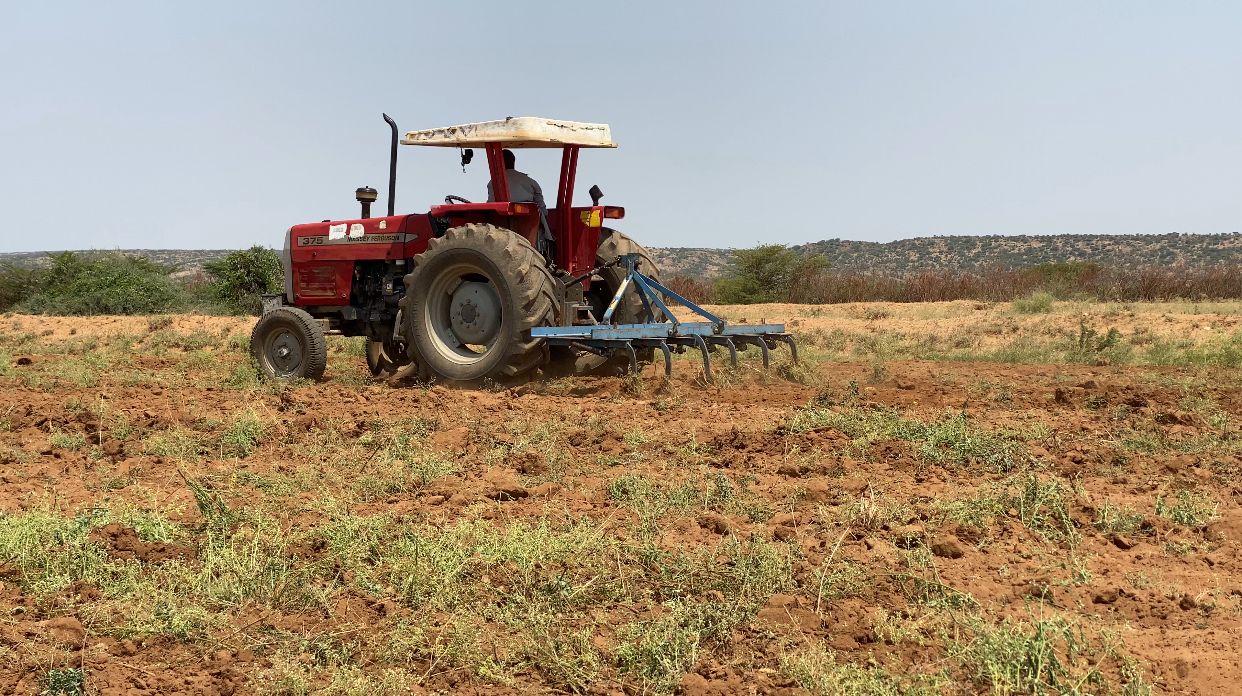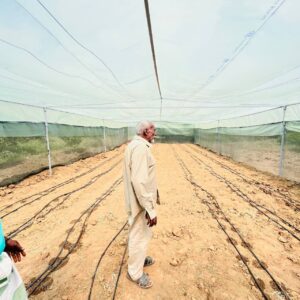Promoting climate smart-agriculture to restore lost livelihoods and provide food security

“While the training was an eye opener, the team from HAVOYOCO followed it by providing us with seeds, farming tools, solar power for irrigation and greenhouses, which gave all of us a starting point. We have never looked back.” – Hussein Ahmed, a project beneficiary
In recent years, the Horn of Africa has experienced its worst drought in more than four decades, leading to a catastrophic hunger crisis, with famine-like conditions in pockets of the region. Somalia’s drought surpassed the 2010 to 2011 and 2016 to 2017 droughts in duration and severity. Data from the Integrated Food Security Phase Classification showed that more than 4.3 million people in Somalia would experience acute food insecurity through December 2023.
In response to this devastating crisis, the Center for Disaster Philanthropy launched the CDP Global Hunger Crisis Fund in 2022 to support vulnerable, marginalized and at-risk groups to prevent and address hunger, malnutrition and starvation, build resilience to current and future climate-related drought and food insecurity, and focus on longer-term solutions to help them recover with dignity.
CDP awarded a grant to NEXUS Consortium – Somalia in 2023 to improve household livelihood and food security and increase the ability of drought-affected farmers from marginalized communities in Somalia to adapt to and manage current and future climate-related risks.
With funding from CDP, NEXUS implemented the Adaptive Climate Smart Agriculture project through its two partners, the Horn of Africa Voluntary Youth Committee (HAVOYOCO) and Social-Life and Agricultural Development Organization (SADO) in Somalia’s Gabiley and Bardhere districts, respectively.
To start, HAVOYOCO and SADO conducted Climate Change Adaptive Farming Techniques training with farmers. Through the trainings, farmers learned climate-smart agriculture production skills and increased their understanding of smart farming, particularly in the context of climate change.
This knowledge will help farmers mitigate the adverse effects of climate change on agriculture to ensure a stable and reliable food supply and steady income. The farmers are now empowered with the knowledge of sustainable farming methods, such as crop rotation, ideal pest control, organic farming and efficient water management. They also better understand the advantages of these practices, including increased yields, reduced environmental impact and long-term viability.
In the video below, Habiba Adan Ahmed, a project beneficiary, discussed the training and what she learned.
In addition to the training, the project also included the provision of quality seeds and planting materials to support the cultivation of climate-resilient crops, soil cultivation and tractor tilling services to help farmers reclaim arid and abandoned land, the installation of solar-powered water pumps, and the construction of greenhouses to increase crop production.

Farmers received tomato, carrot, cabbage, spinach, coriander seeds and other climate-resilient crops to plant. By cultivating these crops, farmers will be better prepared to face uncertainties like droughts or extreme weather events, providing food security for their families, enhancing their resilience, and improving their livelihoods and income generation capabilities.
The installation of solar-powered pumps greatly simplified access to water while simultaneously lowering costs. By reducing the dependence on conventional power sources and their associated expenses, this sustainable solution promotes economic viability among farmers. It also aligns with environmentally responsible practices, contributing to a more efficient and eco-friendly approach to farming.
In this video, Abdi Ali Diriye, a project participant, discusses the Adaptive Climate Smart Agriculture project and how it has impacted his community.
CDP is proud to support NEXUS Consortium Somalia and its partners in their efforts to improve the region’s food security by supporting community-led initiatives and helping farmers adapt to, mitigate and manage climate-related risks.
Story by Ruja Entcheva